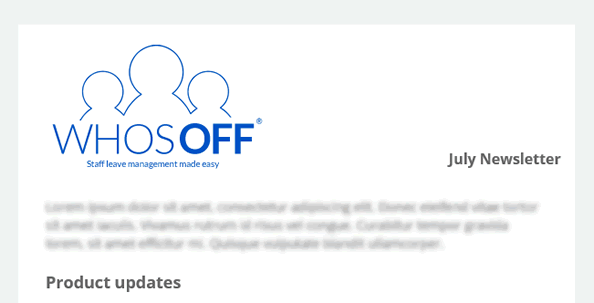
When you’re creating an employee benefits package, there’s often a discussion around the maximum holiday entitlement you will offer members of staff. But should you also incorporate a minimum requirement into your annual leave policy?
With studies showing that well-rested workers are likely to be less stressed, more productive and demonstrate greater loyalty to their employer, there’s a good argument for encouraging team members to take regular time off on a regular basis.
Presenteeism is a major professional problem
While most UK workers are great at their job, they aren’t excelling when it comes to using annual leave.
Research by Glassdoor has found that the average British professional takes just 62% of their paid holiday entitlement each year – and 40% take only half their allocated time off. The pandemic exacerbated this issue, with locked-down workers stacking up 6 million hours in unused leave in 2020/21.
At the same time, people are working longer hours; UK workers put in around £4.2 billion in unpaid overtime collectively every week, which equates to around 10 hours per person. That adds up to a national annual overtime bill of more than £219 billion, and a lot of burnt-out employees.
What are the benefits of taking time off work?

On the surface, it might seem like employers are getting more for their money if staff aren’t taking their full holiday entitlement. However, over-working can affect everything from people’s concentration levels to their mental and physical health – meaning staff might be present at work, but they’re not adding full value.
Encouraging your workforce to take regular annual leave gives them an opportunity to rest, de-stress and optimise their work/life balance. So they’re ready to give 100% to the job while setting clear and healthy boundaries.
Most employers pay little attention to staff leave, other than making sure you are meeting the legal UK requirement for statutory paid holiday entitlement. However, proactively managing time off can help your business to:
- Stop employee burnout – so that people are functioning well in their role rather than feeling over-tired and out of inspiration. A scientific study published in 2010 found that employees with lower stress levels and high job satisfaction are more likely to be productive in their role.
- Reduce staff sickness– overworked staff often have poorer mental health and lower functioning immune systems than well-rested colleagues, so are more likely to be absent due to illness. With staff sickness costing the UK economy £77.5 billion a year, it makes economic sense to create a culture of rejuvenation, rather than letting colleagues work to the point they get sick.
- End last minute leave requests – without being encouraged to take their annual leave throughout the year, some employees only realise how much holiday they’ve got left to take when they have to ‘use it or lose it’, resulting in a big influx of last minute leave request for employers to manage.
- Mitigate calendar clashes – if everyone’s clamouring to take time off before the holiday year ends, the chances of two key people booking the same annual leave is high. Monitoring leave throughout the year will help you to ensure there are no calendar conflicts, so staff leave doesn’t impact business productivity.
- Prevent continuous carryover – some companies offer annual leave carryover in a bid to help hard-working staff manage their leftover time off. But without proper monitoring, their total leave entitlement can spiral to a total that’s impossible to use.
Using staff holiday management software to track minimum leave

There are clear benefits to monitoring how much leave staff are booking and requiring them to take a minimum number of days off each year. But keeping on top of employee movements isn’t easy if you’re relying on emails, paper forms and spreadsheets to coordinate staff holiday.
One straightforward way to accurately track employee holiday in real-time is through an online leave management system like WhosOff. By going digital, you can set restrictions and alerts relating to your annual leave policy, to identify any team members that are not taking advantage of their paid time off entitlement.
With WhosOff, you can set rules around how much leave people carry over – so it’s obvious from the start of the holiday year how many days are included in each person’s allowance. This way, you can avoid leave rolling over from year-to-year, building up to an unsustainable level.
For more on this read our blog post: is annual leave carryover a good idea?
Book your free WhosOff trial to manage staff leave in real-time.
Photo by rawpixel.com/Public Domain Pictures of Pexels.com

